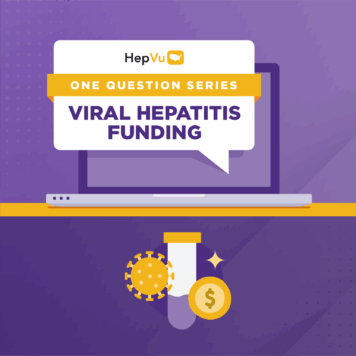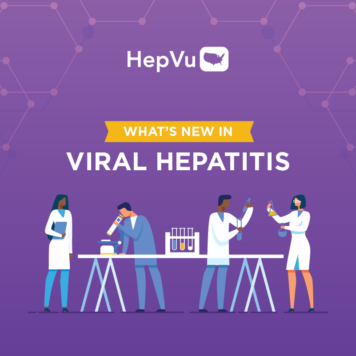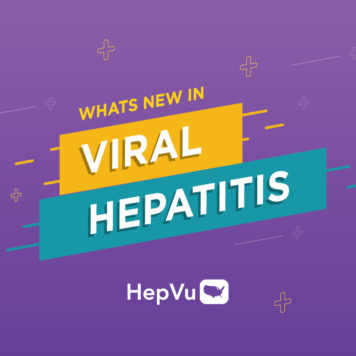U.S. Congresswoman Grace Meng represents New York’s 6th Congressional District and co-chairs the Congressional Hepatitis Caucus.
Q: You currently serve as Co-Chair of the Congressional Hepatitis Caucus, a group dedicated to “building awareness, promoting early treatment, and advocating for preventive measures to eliminate viral hepatitis.” Why is it important to have a caucus specifically focused on viral hepatitis?
An estimated 5.9 million people in the United States are living with the Hepatitis B virus or Hepatitis C virus. But despite these high numbers, awareness is low: close to three-quarters of the population infected with Hepatitis B or C are unaware that they have it. As a result, their condition goes untreated, and they do not receive the life-saving care they require. That is why is vital to increase awareness and the importance of getting tested, which are essential goals that our caucus seeks to promote.
Q: In 2019, the Congressional Hepatitis Caucus submitted letters to other Members in the House and Senate that improved viral hepatitis funding for FY 2020. In President Biden’s budget request, he asked for $39.5 million for the Centers for Disease Control and Prevention’s Division of Viral Hepatitis and $19.5 million for the Infectious Diseases and Opioids Epidemic Program, just a modest increase from the past year. How will you work for increased funding?
As a member of the House Appropriations Committee, I have worked to increase funding for awareness, treatment, prevention, and research of hepatitis. For fiscal year 2022, I obtained $44,500,000 for the Centers for Disease Control’s (CDC) Division of Viral Hepatitis, which works to combat viral hepatitis. I also secured language urging the CDC to develop a plan to achieve Hepatitis B vaccination goals. Despite the availability of the vaccine, less than 25 percent of adults aged 19 and older are vaccinated. The measure encourages the CDC to partner in this effort with states, local health departments, and leading Hepatitis B organizations. I will continue fighting for even more money and important policies in future appropriations bills.
Q: COVID-19 has disrupted funding for, and progress made in many other public health challenges, including viral hepatitis and the opioid epidemic. How will this experience ensure we can support essential viral hepatitis resources moving forward?
The coronavirus pandemic has wreaked havoc on our nation and we must continue to do all we can to move forward with our nation’s recovery. But we cannot forget about the importance of combatting hepatitis. We must continue to bring greater attention to hepatitis and make sure we allocate needed funding to address the problem. I remain committed to these urgent priorities.
Q: In 2018, you collaborated with Hepatitis B Foundation and the NYC Hep B Coalition to promote Hepatitis B awareness among Asian Americans and Pacific Islanders in New York City. New York was also the first state in the country to create a Hepatitis C elimination plan, setting aside $5 million in funding. How do you plan to continue raising awareness and supporting viral hepatitis elimination plans in your district and state?
One of the important times to raise awareness is on the annual World Hepatitis Day, which this year falls on Wednesday. Organizations across the globe mark this annual observance to raise awareness of hepatitis, and I am proud to join in that effort as well. I’ve reintroduced a resolution calling for the House of Representatives to formally recognize World Hepatitis Day to increase awareness of this silent killer and encourage people throughout the world to take preventative action, get tested, and urge greater partnerships among federal, state, and local health departments to eliminate new infections in the U.S. We must also not forget how Hepatitis B disproportionately affects Asian Americans and Pacific Islanders, who account for over half of Hepatitis B cases despite making up only 6% of the U.S. population. In addition, I have worked with organizations and advocates on community forums and events to get the word out to constituents and other New Yorkers, and I will continue to do so.
Q: July 28 is World Hepatitis Day, an opportunity to raise global awareness about the impact of viral hepatitis and the need for prevention, testing, and treatment. What advice do you have for researchers, advocates, and other stakeholders who want to meaningfully engage with their representatives to highlight the importance and urgency of viral hepatitis elimination?
We must do everything possible to find a cure, and I will continue doing all I can to help accomplish that vital goal. I thank all the researchers, advocates, and stakeholders for their tireless work and encourage them to continue speaking out and raising awareness about the importance of eliminating hepatitis. Contact your representatives on all levels of government; share the statistics and importance of this issue; offer to partner with them in spreading the word to their constituents. The more voices on this issue, the better.




